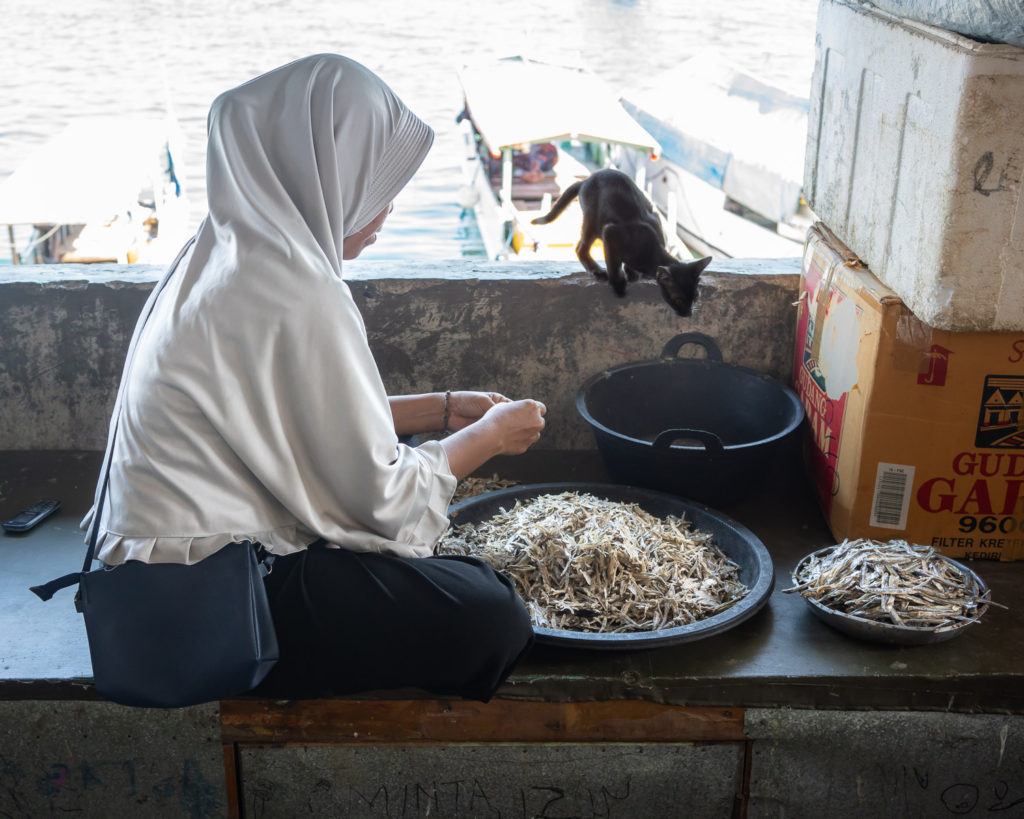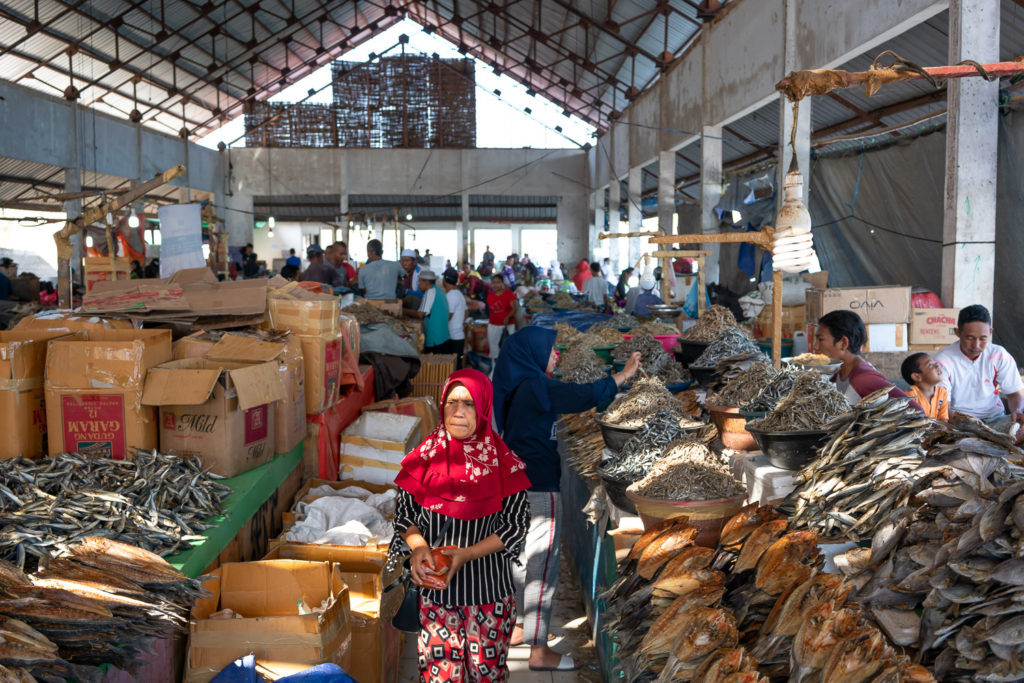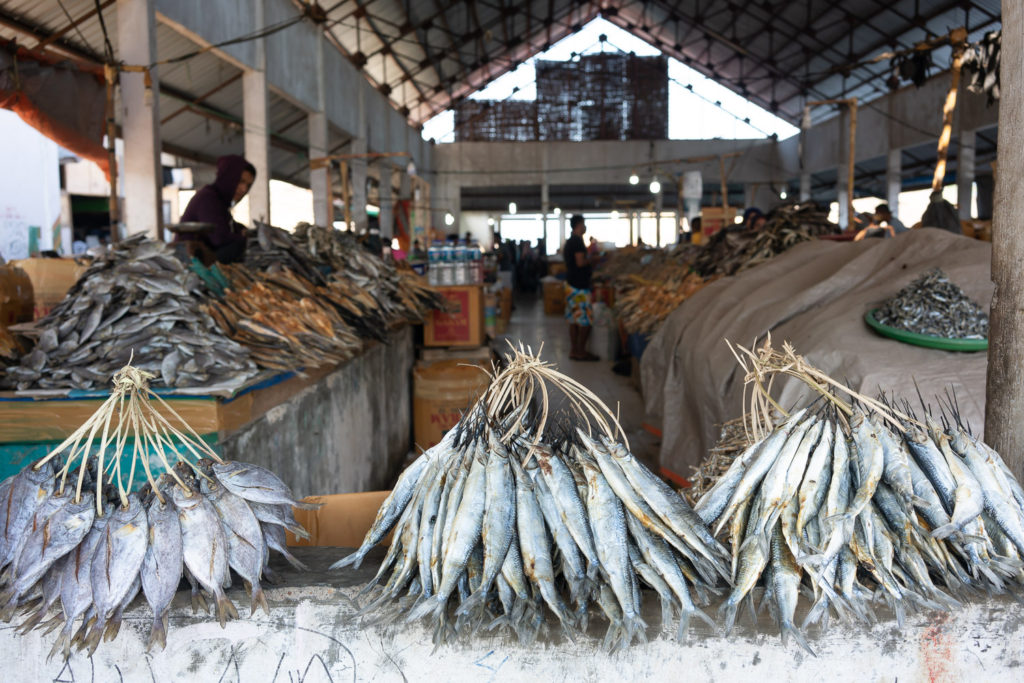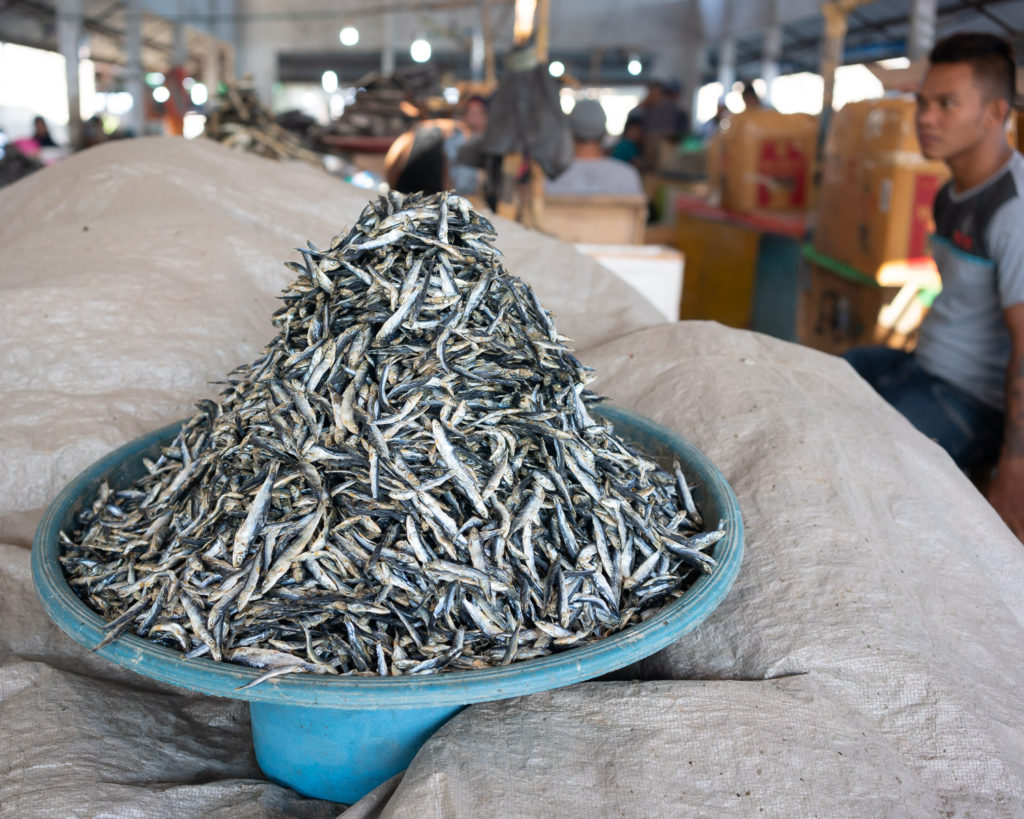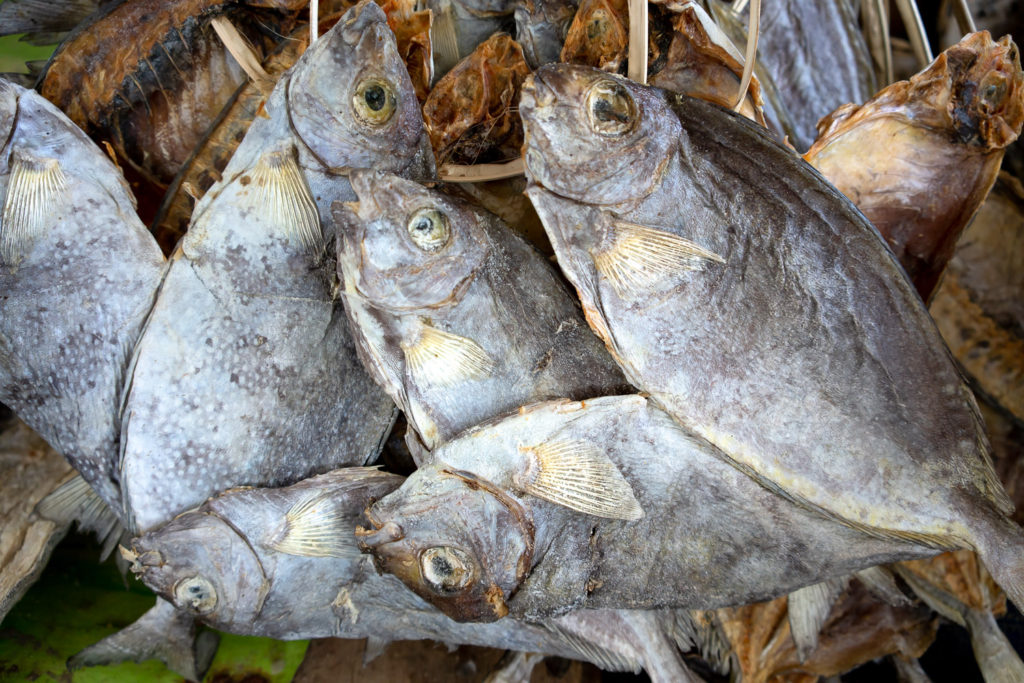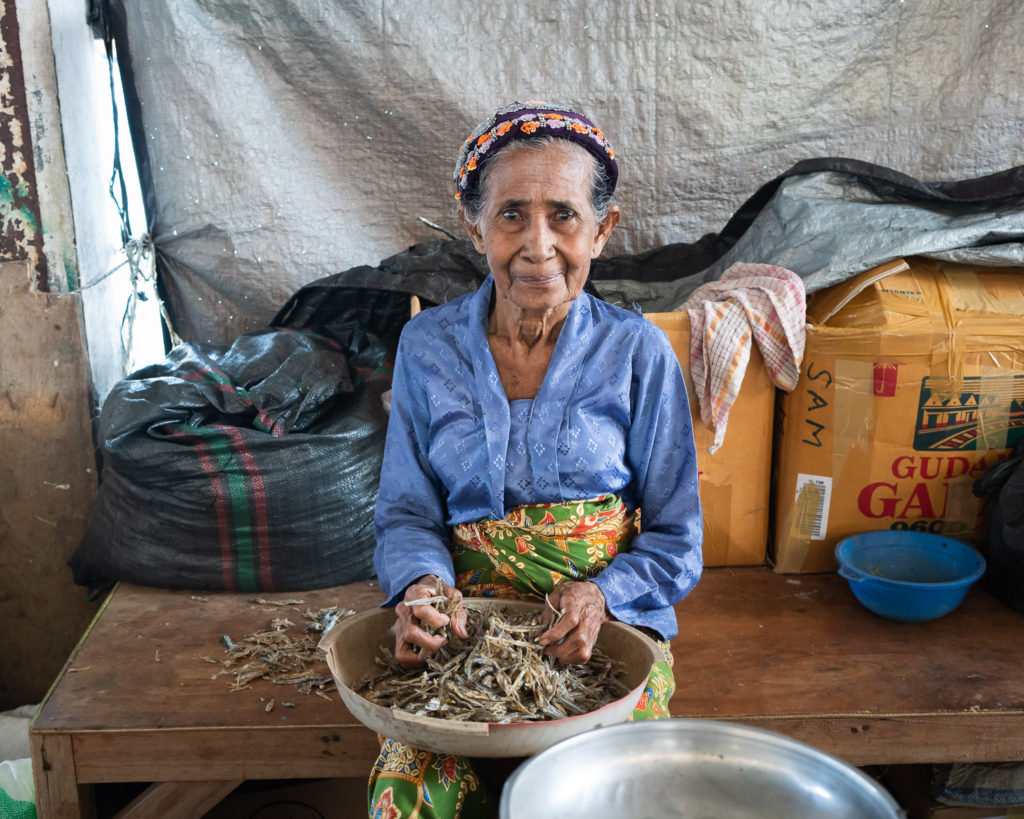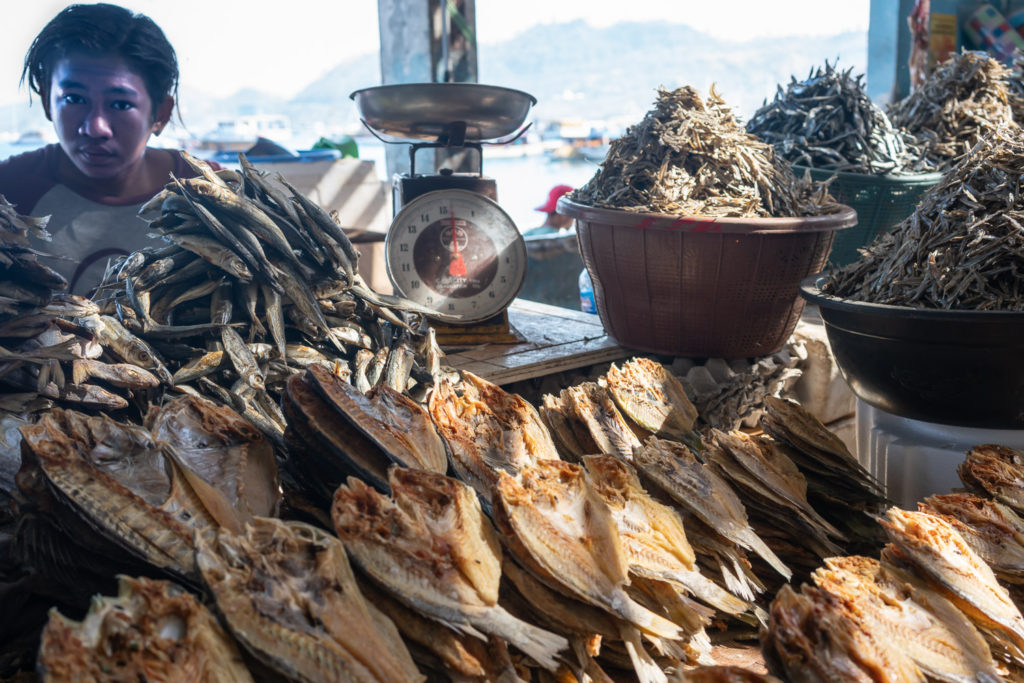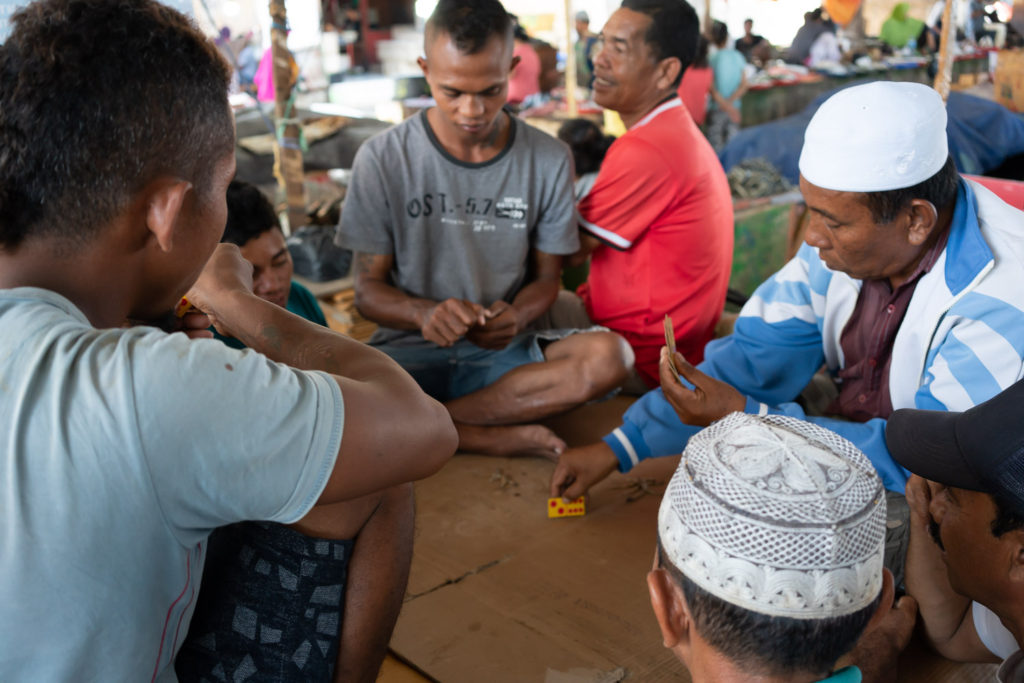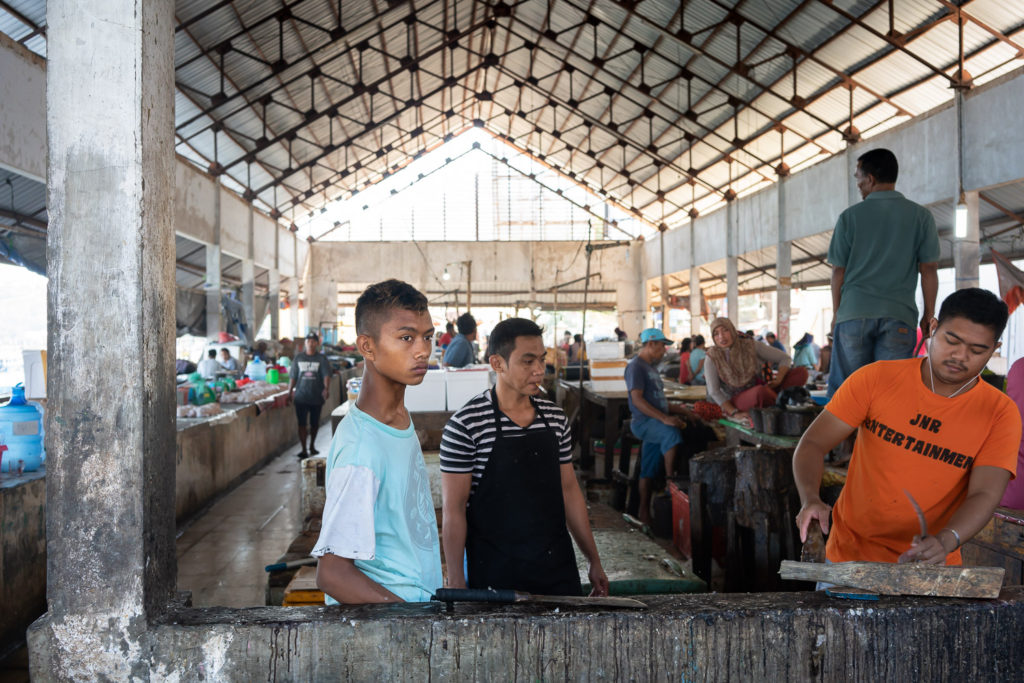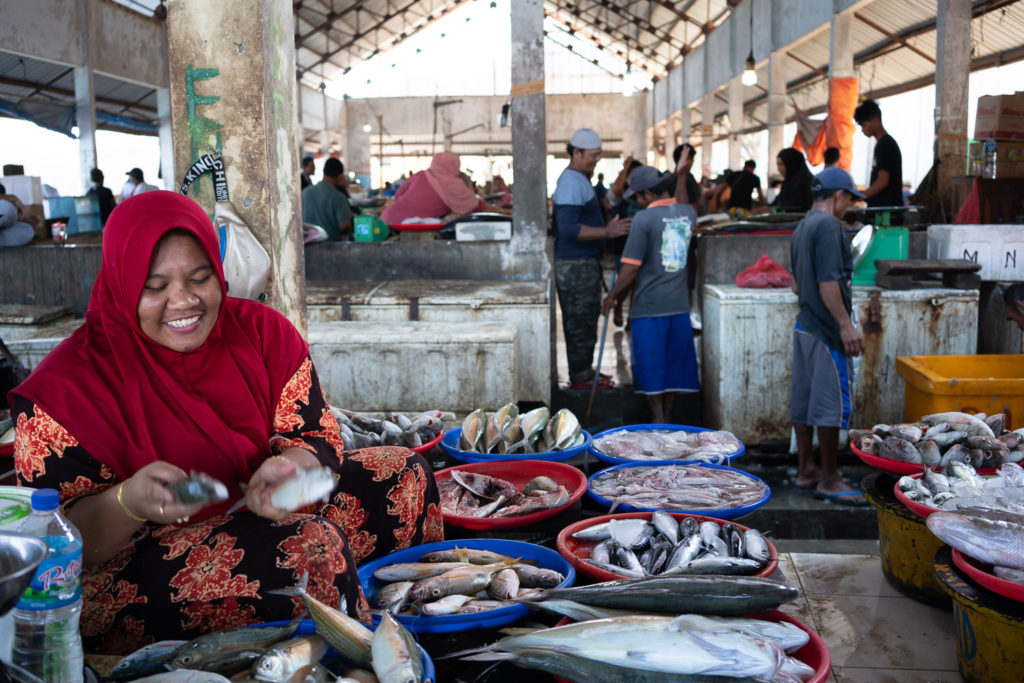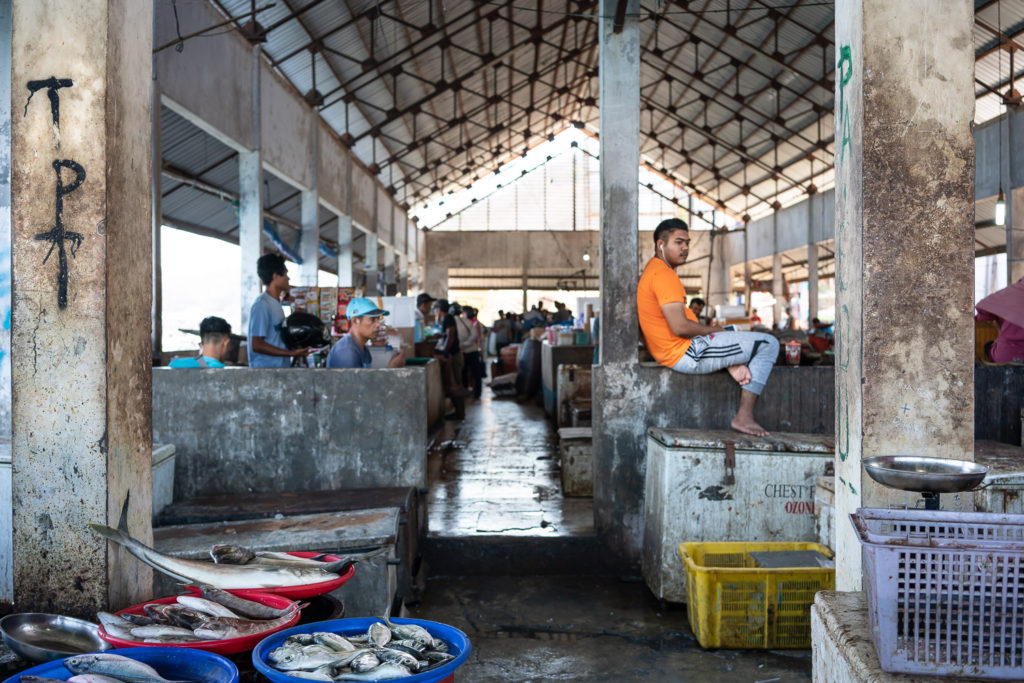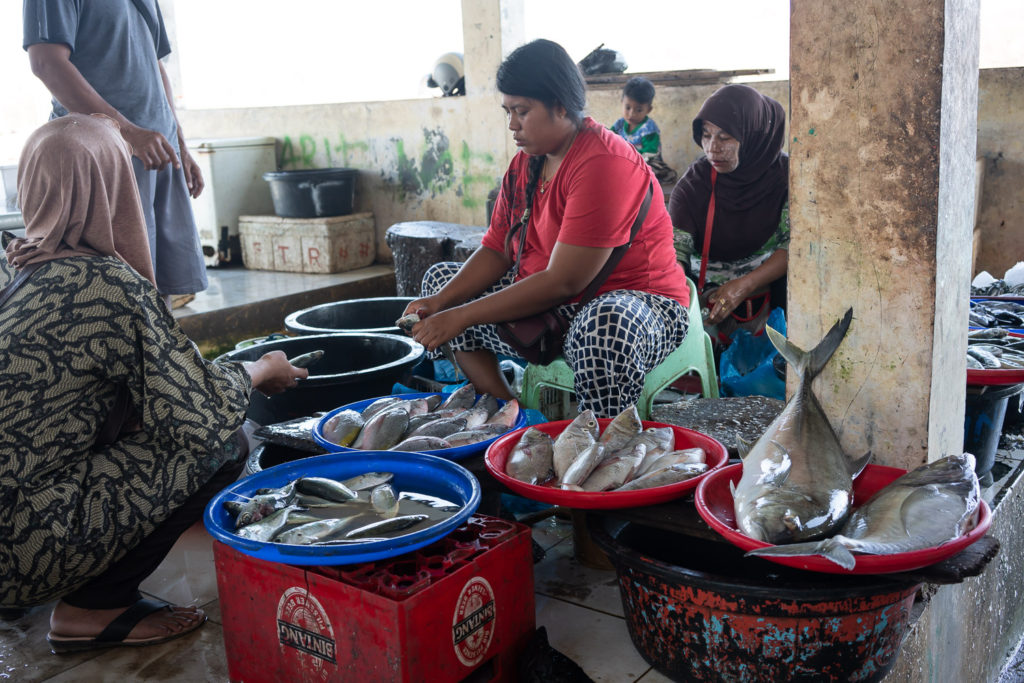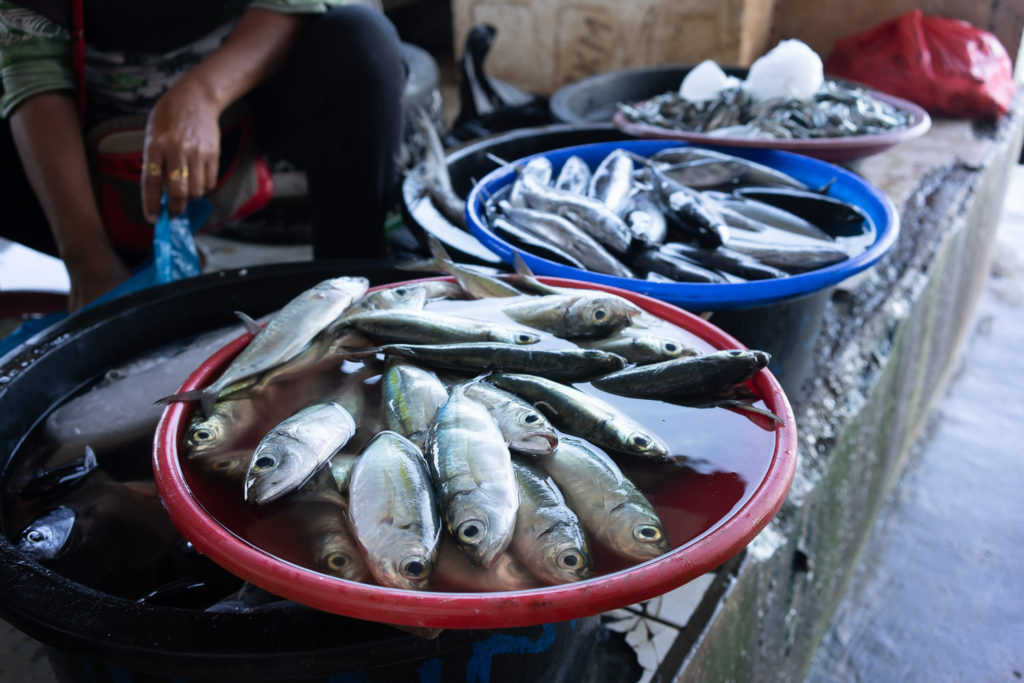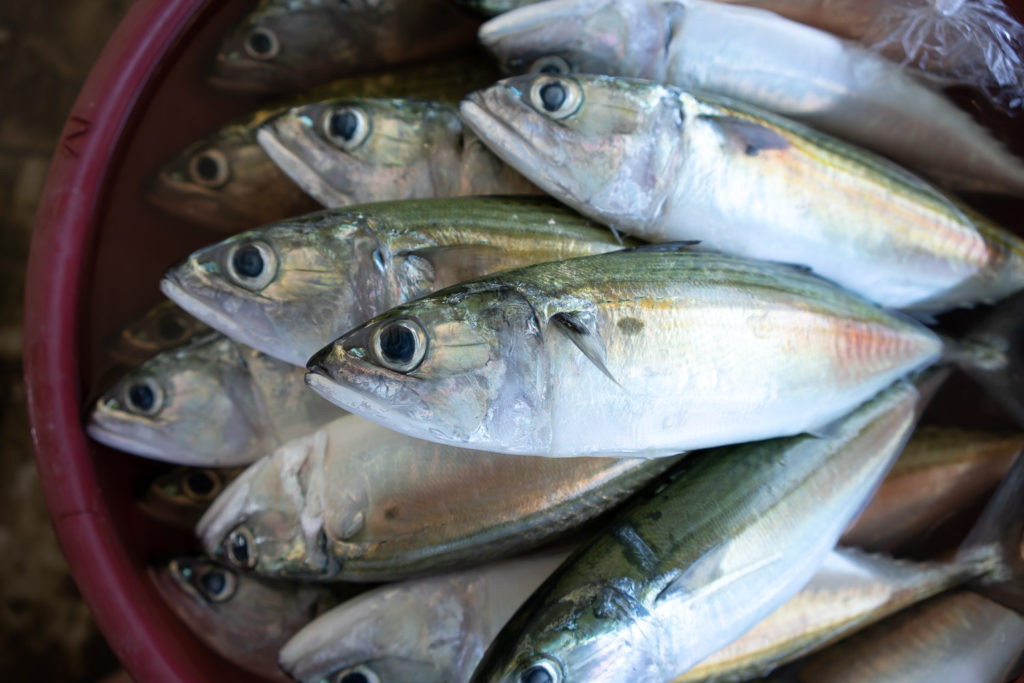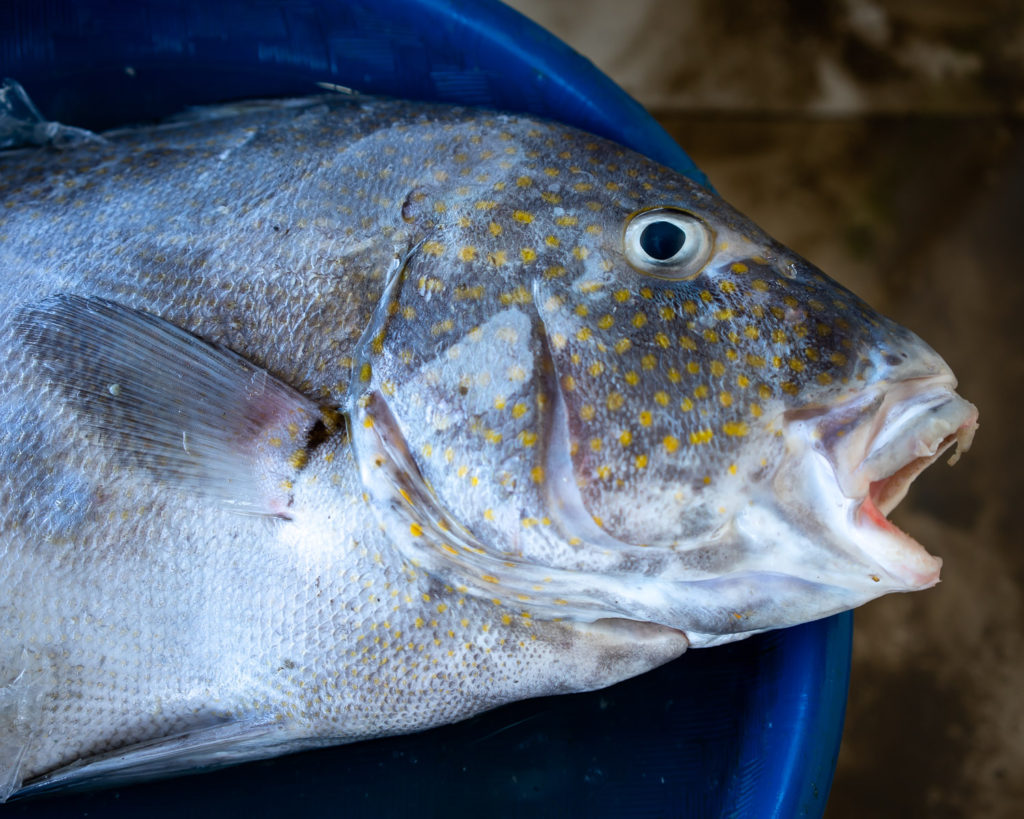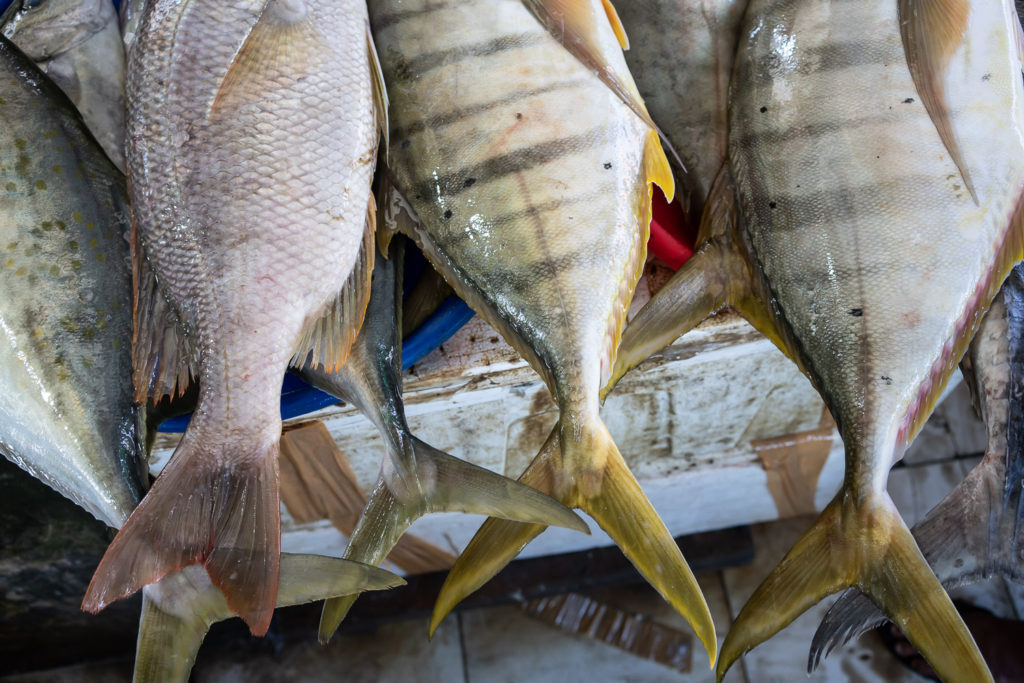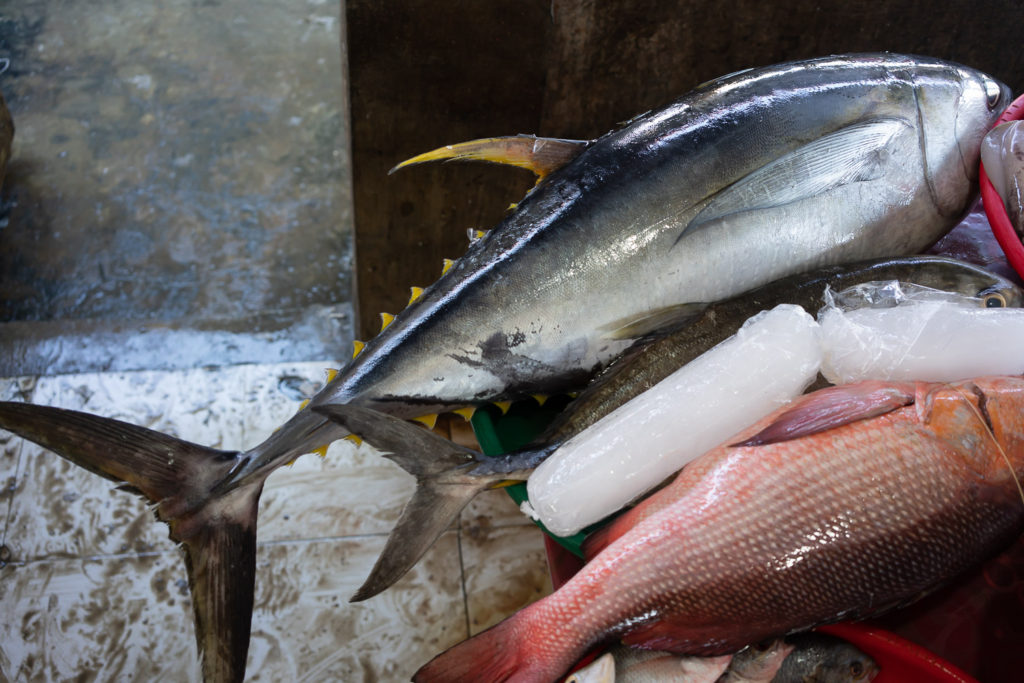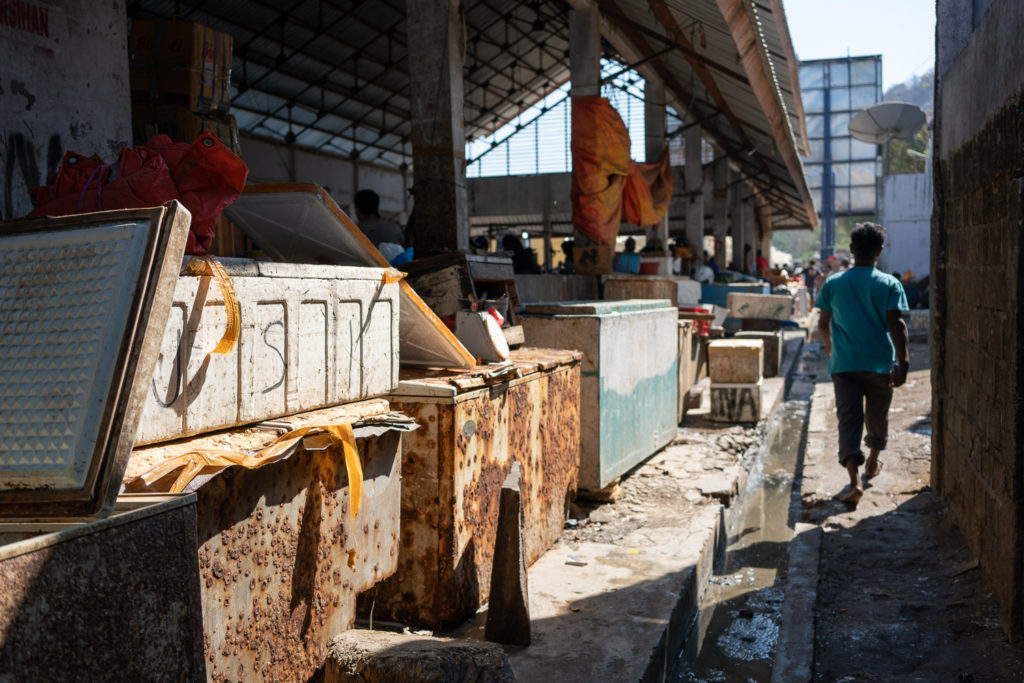Labuan Bajo – Fish Market
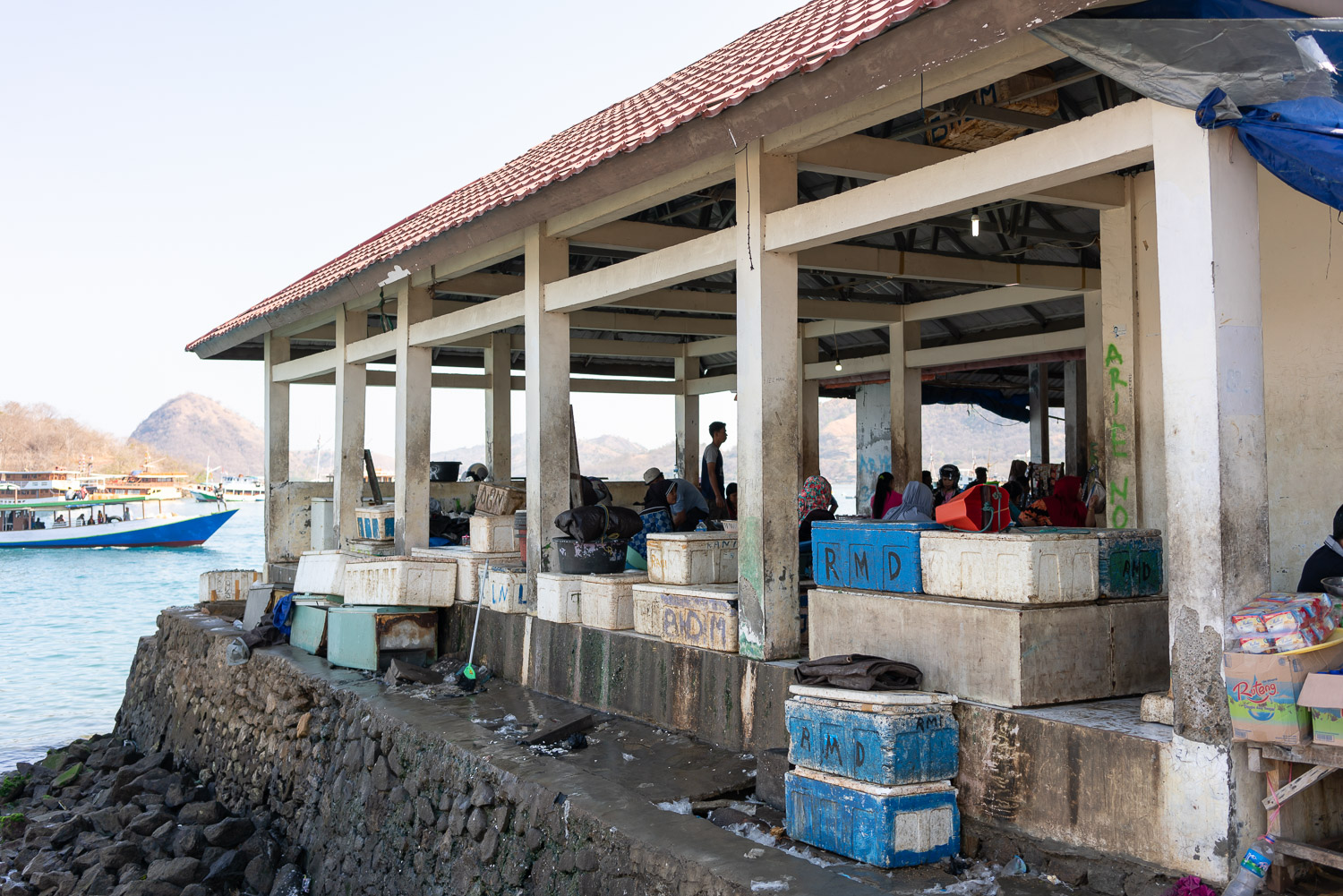
At the point where Labuan Bajo’s main street turns a corner along the waterfront there is a fish market in a large open building. Adjacent to the market new construction and street improvements are beginning to transform the old-village nature of the area. A new hotel and retail spaces are under construction on one side, and a waterfront promenade is just being finished on the other. Inside the market building, however, the sights and smells and transactions display a very different way of life. One end of the market has tables piled high with neat stacks and mounds of dried fish of all sorts. The smaller fish are dried whole, while the larger fish have been split open like a book before being salted and dried in the sun. It’s a great place to look at fish anatomy – you can also see what octopus, squid, and barracuda look like in detail, sometimes from the inside out. The other end of the market has fresh fish of all types and sizes, right up to a good-sized tuna on the morning I came through. Men are sharpening knives and breaking up sacks of salt on this end. Big beat-up Styrofoam boxes and rusty old cooler chests are stacked along the aisles and in the adjacent alley. Other than the occasional tubes of ice lying alongside some of the larger fish, the vendors keep the fish fresh-looking by pouring water over them regularly. Smaller fish lie together in arrangements and stare up at you. There are no refrigerated display cases, even though outside the open-air building the temperatures are typically 88-90 degrees Fahrenheit (32-32 Celsius) during the middle of the day.
I was fortunate to have a chance to see this old market and the building it’s in while it’s still here. The fish market is about to be moved to the fringe of the waterfront, to a new larger building that is nearing completion. This is to make way for the redevelopment of the site to a Hard Rock Café, part of the growth of the town that is geared to the dive industry and backpacker hostels. These new developments will not cater to the local folks, although some will find work in them. I imagine that if I were to come back here in a few years I would have a hard time recognizing the place and seeing the culture that is rapidly being displaced.
